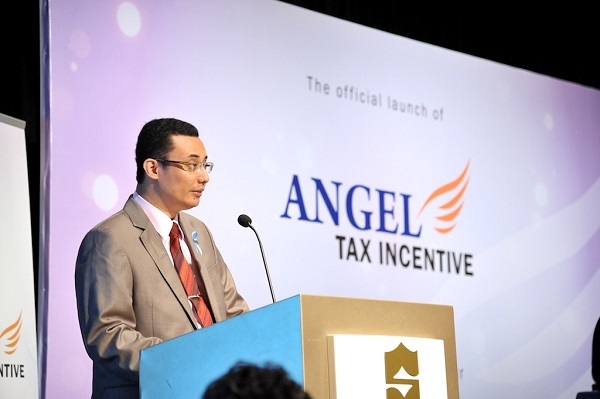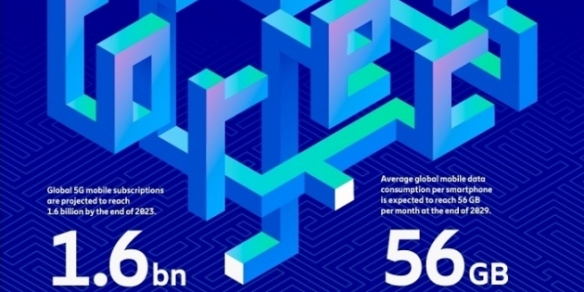Malaysian startup ecosystem mourns untimely passing of peerless Nazrin Hassan
By Karamjit Singh June 16, 2018
- Keenly aware that all the components of the startup ecosystem had to come together
- Wanted trust, flat social hierarchy, relationships as hallmarks of Malaysian ecosystem

HE IS gone too soon with still so much work to be done. In a blow to the Malaysian startup ecosystem, Nazrin Hassan, the peerless and dynamic CEO of Cradle Fund Sdn Bhd, tragically lost his life due to a freak accident at his home on June 14, on the eve of Hari Raya.
His untimely and sudden passing at 45, comes as a shock to the startup ecosystem. It is an irreplaceable loss as Nazrin was not only a pillar of strength of the Malaysian startup ecosystem but played an indispensable role in building the ecosystem to its present state.
A dot com entrepreneur in 2001 running a travel portal, Nazrin had first-hand experience in the difficulties startups from emerging nations have in trying to raise early stage funding in an environment where few knew what angel investing was and where seed funding from VCs was limited and came with restrictive conditions.
And that is why he and a few other pioneers such as Dr V Sivapalan, Christopher Chan and Tengku Farith Rithaudeen got together and formed the Technopreneur Association of Malaysia or TeAM in 2001. It was an association of entrepreneurs, by entrepreneurs, for entrepreneurs.
It was through TeAM that Nazrin, Chris and Farith (Sivapalan was in Scotland during this time doing his PhD) came up with the plan for a development fund supporting entrepreneurs at the idea and pre-seed level with Nazrin going on to present it to then Prime Minister, Tun Dr Mahathir Mohamad in May 2003 at a pre-budget dialogue.
In historic circumstances, Dr Mahathir is now back as Malaysia’s Prime Minister after leading his Pakatan Harapan (Coalition of Hope) to victory in Malaysia’s May 2018 polls.
TeAM’s lobbying efforts and Nazrin’s passion in pushing for such a fund saw the government recognising the urgency of the situation and approving the Cradle Investment Fund to the tune of US$25 million (RM100 million) and Dr Mahathir launching the fund a mere five months later on Sept 29, 2003.
Without going into the history of Cradle, while most think Nazrin was its CEO since launch, it was actually in 2007 that he became its CEO. A DNA Digerati50 from the 2014-2015 and 2016-2017 batches, he has described it as his dream job. “The best part is when entrepreneurs tell me that I’ve helped them get their feet wet in business or better still, that their products or services have been commercialised.”
And that he did, having helped close to a thousand entrepreneurs in their journeys. Journeys that he, as an entrepreneur himself, had gone through and which ingrained in him great empathy for all those embarking on their journeys.
But knowing how very tough those journeys are, he also knew that the gods of entrepreneurship only rewarded the toughest and most committed.
That’s why capacity building, be it through Cradle’s or other agencies’ programmes was as important to him as funding entrepreneurs, especially at the early stages of their journey.
Experience had taught him that taxpayer money was better invested in entrepreneurs if the grants came with capacity-building programmes which helped them execute better and scale regionally.
And though Cradle has been offering capacity building through the years, it was unstructured and ad-hoc.
Nazrin systematised this combination with the February 2017 and May 2017 launch of its DAQ800 equity fund and CIP300 grant programme respectively.
That is why, aside from mentoring, the two programmes also deliver match-making with Cradle’s partners, programmes around innovation and commercialisation, participation in business and networking events and even media and public relations, which startups struggle at.
“We are moving from horse betting to horse training,” he quipped.

A different Cradle today from 2007
Cradle also has a different focus today from when Nazrin came in as CEO in 2007 with the key difference being its shift to move into equity financing and less as a grant giving agency. As he told me last year, “With the funding market maturing, it is time to mature our entrepreneurs as well and one way is to lessen their dependency on grants, especially where there are other alternative funding options such a crowd funding platforms and angels.”
Keenly aware that all the components of the startup ecosystem had to come together, Nazrin also had a key role in building up the private funding avenues in Malaysia, especially angel investing.
The Malaysian Business Angels Network (MBAN) started out under Cradle’s watch in 2012 before it stood on its own in March 2014 while the Angel Tax Incentive, something Nazrin relentlessly pursued since 2009 before it was finally introduced in 2013, was also under his watch.
He told me back then, “Together with MBAN, Cradle intends to be the one-stop centre for all things related to angel investment – be it the administration of the tax incentive, raising awareness, educating angels or linking them to technology companies.”
It is easy to go on and on about how Nazrin has helped shape the ecosystem through various initiatives that he helped create or supported but the most amazing fact about Nazrin is how he touched so very many people in the Malaysian startup ecosystem with everyone hailing his down-to-earth and approachable nature, dynamic drive coupled with a deep passion to grow the Malaysian startup ecosystem to the stage where it takes on a life of its own some day with minimal government support needed.
But gone too soon, the fulfilment of Nazrin’s dream of seeing a world-class startup ecosystem in his beloved Malaysia now rests on the shoulders of all the other leaders of the ecosystem, be they from the private sector or government.
There is an added weight on our shoulders now and I for one, accept it. And I know that I echo the feelings of a great many when I say that I am deeply thankful for what Nazrin has done for his country, for the startup ecosystem and feel blessed to have been his friend from the earliest days of his journey and witness his growth as a world class technocrat. Malaysia has truly been blessed with him.
And if there is one thing he would like to see improved in our ecosystem, it is the removal of social hierarchies and barriers because he feels that they get in the way of us building a truly great startup ecosystem.
In his own words, “Malaysia is a country with too many social hierarchies and strata which go against building a good ecosystem.”
“A good ecosystem depends on good relationships, high trust and flat societies with less hierarchy. If Malaysia wants to rise faster, we need to have leaders who have the common touch, humility and are accessible to the public. If we can move to a more informal society, we can get more entrepreneurs in our society to succeed.”
And in a multi-racial nation where discrimination by race has become institutionalised in the public sector and still practiced, informally, in the private sector, Nazrin has always stood out as a shining beacon of a patriot who saw himself as a Malaysian first and second. That is how he moulded Cradle. And this is another reason why he was so highly respected and loved.
So, in his memory let us all work to make high trust, flat social hierarchy and stronger relationships a hallmark of the Malaysian startup ecosystem. I know that will bring great joy to Nazrin. That and regional and global success of some of our startups. And of course, his beloved Arsenal FC winning the English Premiership and UEFA Champions Cup!
Related Stories:
Biggest challenge for Malaysian based startups – lack of global connectedness
Cradle’s CIP300 grant is more than free money
Cradle aims to turbo boost Malaysia’s startup ecosystem


